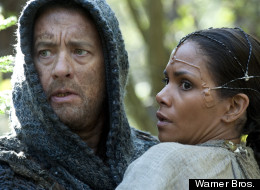Thought I'd share the prayer I wrote here, since it didn't actually have that much to do with Christmas per se. Somehow I managed to get birds in there instead.
To begin, the words of a Sabbath poem by writer Wendell Berry:
Teach me work that honors Thy work,
the true economies of goods and words,
to make my arts compatible
with the songs of the local birds
Teach me patience beyond work
and, beyond patience, the blest
Sabbath of Thy unresting love
which lights all things and gives rest.
Let us pray.
Dear Giver of light, and of rest; dear Source of pure songs rising from this dark season,
Thank you for these songs--these glorious voices, these cherished instruments, from quietest flute to unstopped organ. Thank you for the youthful hopes and dreams of our students, your children here and throughout the world, who sing and play and praise you, in sounds that are beautifully compatible with the songs of the local birds.
Sustain their hopes and dreams, with your unresting love, even in dark times.
With your unresting love, teach us all--all of us gathered here tonight, all of us throughout the world--to honor true economies of goods and words. To respect and revere both the makers of art and music and the makers, and maintainers, of our communities and our homes. Those who care for our children and our elders. Those who teach, those who govern, those who build, those who cook, and clean, and nourish.
In this season of dark and quiet, teach us to rest in your unresting love. To acknowledge, and attend to, the needs of others. To attend to, and to value, the boundless gifts of the natural world. To listen with restful patience, and deep appreciation, to tonight’s sublime music, but also to the raucous cries of a gaggle of geese or a rookery of crows.
We are grateful to you for the opportunity to rest, tonight, in the beautiful light of this sanctuary and in these sounds of heartfelt praise. Help us, when we leave, to carry this light and these sounds with us, and to share both, in whatever ways we are able, with others.
Amen.
P.S.: I'm certainly no videographer, especially with an iPhone that I don't use very intelligently, but I did try recently to capture some of these remarkable groups of crows that descend on the treetops of center city Bethlehem at dusk each day. So I'll include that little bit of video here. (Pardon the roar of traffic; the fact that you can still hear the crows over the noise of cars gives you some sense of how loud they are.)




